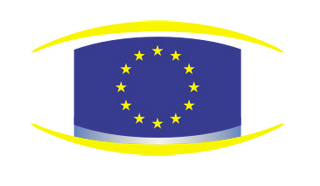The European Council has endorsed a binding EU target of at least a 40% domestic reduction in greenhouse gas (GHG) emissions by 2030 compared to 1990 and will submit its contribution under the UNFCCC by the first quarter of 2015, in accordance with the timeline agreed at the 19th session of the Conference of the Parties (COP 19).
The target is part of the 2030 Climate and Energy Policy Framework agreed by the European Council at its meeting on 23-24 October 2014.
 24 October 2014: The European Council has endorsed a binding EU target of at least a 40% domestic reduction in greenhouse gas (GHG) emissions by 2030 compared to 1990, and will submit its contribution under the UNFCCC by the first quarter of 2015, in accordance with the timeline agreed at the 19th session of the Conference of the Parties (COP 19). The target is part of the 2030 Climate and Energy Policy Framework agreed by the European Council at its meeting on 23-24 October 2014.
24 October 2014: The European Council has endorsed a binding EU target of at least a 40% domestic reduction in greenhouse gas (GHG) emissions by 2030 compared to 1990, and will submit its contribution under the UNFCCC by the first quarter of 2015, in accordance with the timeline agreed at the 19th session of the Conference of the Parties (COP 19). The target is part of the 2030 Climate and Energy Policy Framework agreed by the European Council at its meeting on 23-24 October 2014.
At the meeting, which convened in Brussels, Belgium, the Council agreed that a well-functioning emissions trading system (ETS) will be the main mechanism for meeting its goal. The Council announced that, starting in 2021, the annual factor to reduce the cap on the maximum permitted emissions will be changed from 1.74% to 2.2%. It was also decided that member States with a per capita gross domestic product (GDP) of 60% below that of the EU average may opt to continue to give free allowances to the energy sector up to 2030, as part of measures to ensure EU competitiveness and avoid carbon leakage.
With regard to its emissions reduction target, all EU member States will play a fair role in meeting the target, and it will be carried out in “the most cost-effective manner possible, with the reductions in the ETS and non-ETS sectors amounting to 43% and 30% by 2030 compared to 2005, respectively,” according to the meeting conclusions. Additionally, a new reserve of 2% of EU ETS allowances will be used to address energy efficiency and modernization needs in low-income member States.
On renewables and energy efficiency, targets of a 27% share of renewable sources in final energy consumption and a 27% improvement in energy efficiency (compared to current projections) by 2030 are set at the EU-level. On energy security, the Council agreed, inter alia, to implement critical projects in the gas sector to ensure diversification of energy supplies and routes.
The Council also agreed on the importance of a reliable and transparent governance system in carrying out the Framework; this system will allow for national programmes to continue while uniting different strands of planning and reporting, include systematic monitoring of key indicators, and foster regional cooperation and coordination on national energy policies.
The Council called on all countries to come forward with ambitious targets as well and noted that it will revert to this issue again after COP 21 in 2015. [European Council Website] [European Council (23 and 24 October 2014) – Conclusions] [European Council (23 and 24 October 2014) Conclusions on 2030 Climate and Energy Policy Framework] [UN Secretary-General Statement]